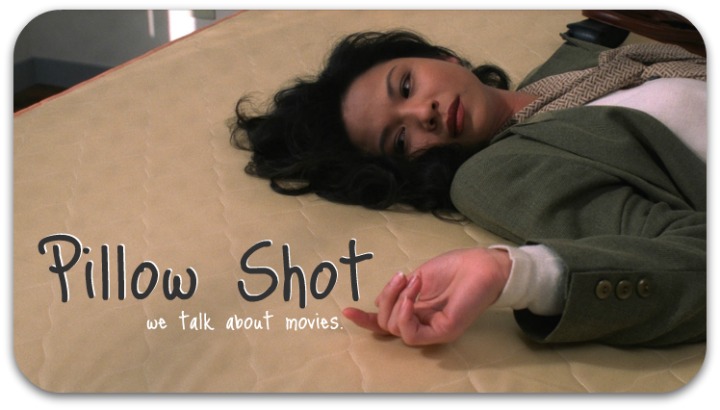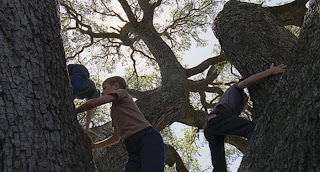 Terrence Malick’s TheTree of Life is undoubtedly his most personal film to date. The frankness and certainty of his direction recalls the likes of Tarkovsky and Kubrick. Few would argue against the fact that Malick is creating a filmography similar to the aforementioned directors, tight-knit and largely comprised of timeless masterpieces, though not all on the same level as one another.
Terrence Malick’s TheTree of Life is undoubtedly his most personal film to date. The frankness and certainty of his direction recalls the likes of Tarkovsky and Kubrick. Few would argue against the fact that Malick is creating a filmography similar to the aforementioned directors, tight-knit and largely comprised of timeless masterpieces, though not all on the same level as one another. The film is the result of Malick’s own seed, from childhood on up. In a sense, it represents his own ‘tree of life.’ The narrative of Jack O’Brien’s childhood takes place in Texas, in a town similar to the one in Illinois where Malick grew up, and it’s a reflective piece overall. The adult Jack, an architect played by Sean Penn, accounts for and deconstructs many aspects of his adolescence, concentrating on familial relationships. These memories are contextualized within the concept of time itself. The layered construction, which contributes to an examination of people and their environment, is consistently recognizable in Malick’s work.
The depictions of the universe and the world's creation particularly evoke the likes of Kubrick, with his own space images featured in 2001: A Space Odyssey, and Tarkovsky, with his oceanic alien world in Solaris. I’d even suggest a comparison with moments of the painted Brakhage films, like Black Ice and Stellar.
Even so, some may not care for the way the film pauses for these long moments, which “break up the narrative,” especially if they tend to prefer a more “traditional” method of plot construction. I believe that Malick is using a technique similar to Apichatpong Weerasethakul's long takes. These long moments are used to allow viewers periods of reflection, thereby broadening the film's impact. Typically, it's a technique that I like and admire, but it didn’t work for me in Tree of Life. For one, the cutting found in the scenes of the central narrative is too frantic. It made me miss the serenity of Malick’s Badlands or The Thin Red Line, which feel more evenly paced and appropriately meditative.
Overall, it's a film that poses many open-ended questions through masterful montage. It seems that as long as there are people open to examining these questions, the film's fan base will grow. For these reasons, I can understand why it won Best Picture at Cannes, and I do feel it is an important film to be remembered. However, the fact that I didn't connect much with the film on a personal level diminished my enjoyment of it. For now, I can say it is a recommended viewing, and that I hope you walk away with more from it than I did.


No comments:
Post a Comment